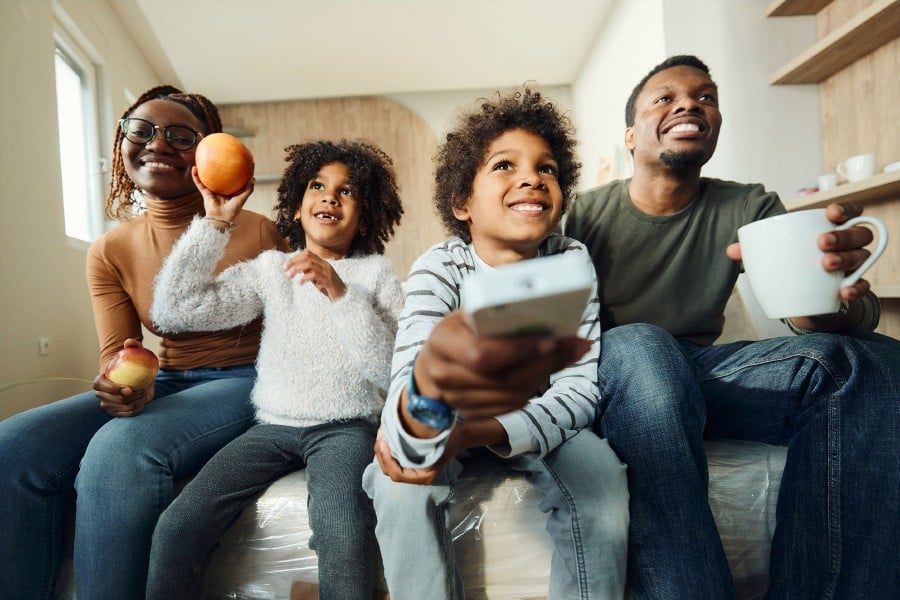CHILDREN'S screen time doesn't have to have a negative impact on their health and literacy skills.
It could even have a positive impact on reading and writing if parents are part of the viewing activity, says a new Australian study.
Rather than focusing on the amount of time spent in front of screens, the emphasis should be on discussions about the content viewed.
The study challenges the established link between the amount of time children can spend in front of a screen and potential problems in their development, academic skills and health.
This meta-analysis, covering a sample of 1.9 million children and adolescents, published in 'Nature Human Behaviour', even suggests that time spent in front of the TV or computer can bring potential benefits for children's reading and writing skills, as long as these moments are shared with their parents.
"That means that taking the time to watch screens with kids could be a good thing," says Rebecca Rolland, speech pathologist and lecturer at the Harvard Graduate School of Education, in an article she wrote for 'Psychology Today'.
This discovery highlights the importance of the quality of interaction during screen time, rather than its quantity.
Rolland says the real question is not so much how much time children spend in front of a screen, but what they do when they're in front of a screen, and the interactivity that can take place as a result.
"There's talking on video chat or Zoom vs playing Roblox with friends, versus vs videos to put on TikTok vs versus simply scrolling.
'It's important to keep in mind that all of these happen on the screen. But they're actually different activities, and affect kids in different ways."
Fewer limits but more interactions
While some aspects of screen time are associated with negative effects, such as excessive social media use and its links to depression in adolescents, the study highlights the need for balance.
The researchers recommend a nuanced approach, taking into account the potential benefits and risks associated with different types of screen use.
Rolland says: "Younger kids, especially 2½ and younger, can have trouble distinguishing reality from fiction on the screen.
"Screen time for them is more likely to be problematic, especially if it takes away from the critical interactions they need with real-life people."
These findings may open up new perspectives for parents and educators regarding how screen time is integrated into children's lives.
Rather than imposing limits, the emphasis should be on enriching and educational interactions that are linked to screen time.

Take care of your eyes by taking eye vitamins available with iHerb voucher code.




